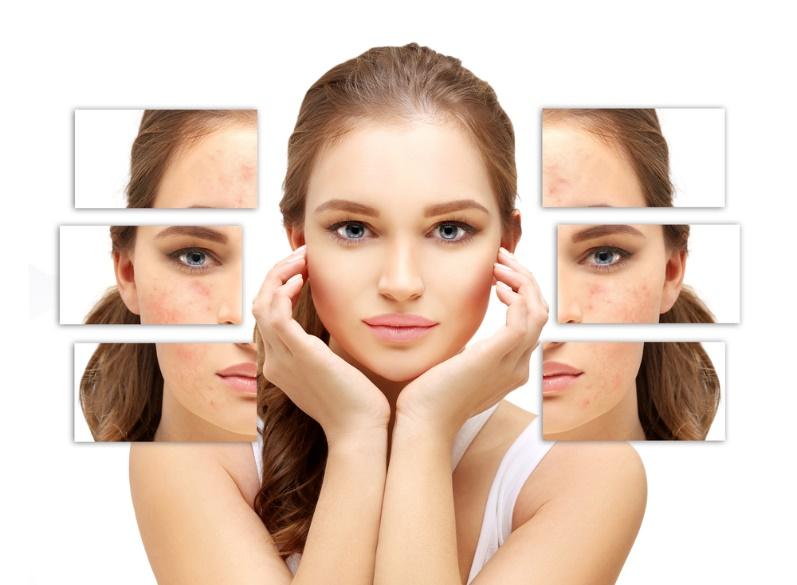 It’s one thing to have to deal with acne. With the proper care and consistency, acne will usually go away, eventually, even though sometimes it requires a great deal of patience.
It’s one thing to have to deal with acne. With the proper care and consistency, acne will usually go away, eventually, even though sometimes it requires a great deal of patience.
Acne scars are another matter entirely. For one thing, they can develop even when you’re trying to be careful. Even worse, the older you get, the more prominent and noticeable they tend to become.
Acne scars can occur anytime the tissue of the skin is damaged. Popping pimples or picking at them are two prime examples of tissue damage that can result in the formation of scars.
Another way scars are created is with the inflammation of certain types of acne. As the inflammation decreases, the actual process of healing may leave a scar. Sometimes those severe, inflamed blemishes are more likely to cause scarring, even without being picked at.
If you’re already dealing with acne scarring, chances are the time has passed for any help from over the counter drugstore remedies. You’ll be better off seeing a dermatologist who is capable of getting the acne under control first and then deciding what needs to be done to minimize the effects of scarring.
How to Get Rid of Acne Scars
One highly effective method of getting rid of acne scars involves using laser therapy specifically developed to resurface the skin without damaging it. The energy from the laser is pulsed into the skin in short bursts.
Known as ‘non-ablative’ laser treatment, it also serves to tighten up the skin and helps increase the natural production of collagen in the skin. Treatment time is typically brief, and there is little to no downtime needed.
Non-ablative laser treatments work best on mild to moderate acne scars. For severe scarring issues, there are alternative methods that may be recommended.
Other Treatments to Get Rid of Acne Scars
While non-ablative laser treatments can take care of a large number of acne scar issues, other procedures can be used when needed. Some alternative treatments for acne scars may include:
- Topical retinoids – typically used only on hyperpigmented areas. For depressed scars or pitting, creams are generally not enough.
- Punch excision, elevation or grafting – involves using a punch tool to cut out the scar. Once removed, the skin is closed with sutures, leaving a smaller scar than before. and one that usually fades over time.
- Dermabrasion – local anesthesia is used to allow a wire brush to rotate rapidly across the skin, helping diminish the appearance of acne scars.
- Subcutaneous incision – sometimes called subcision. A surgical treatment, also performed using local anesthesia and used to treat rolling acne scars.
- Microdermabrasion – a cosmetic treatment, most often performed at a day spa or medspa. Removes only the surface skin cells.
- Dermal fillers – can be injected into the scars to help raise them to the same level as the surrounding skin.
- Steroid treatments – can also be directly injected into scar tissue. Most often used for raised scars, to cause them to flatten out and shrink.
It’s important to understand the limitations of getting rid of acne scars, and to realize in most cases scars will not be completely eradicated. However, it should be encouraging to know there are a number of options available to help make acne scars much less noticeable.

